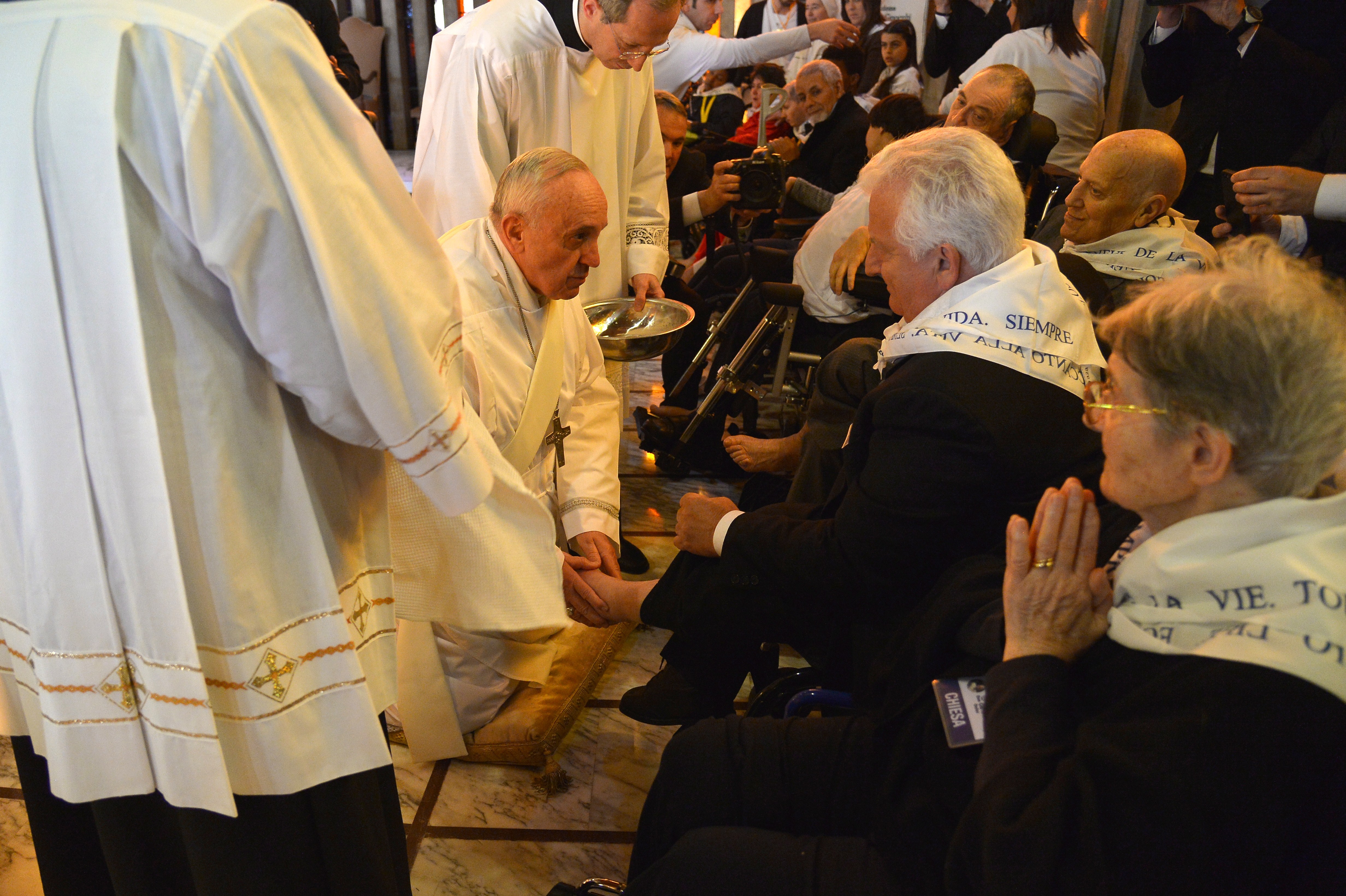Since the pope washed the feet of Muslim men and women at a detention facility at last year’s traditional service, there was plenty of speculation about who would be the recipient of the gesture this year. Now we know.
Ranging in ages from 16 to 86, nine of the 12 patients at a rehabilitation center were Italian, one was a Muslim from Libya, one was a woman from Ethiopia and one young man was from Cape Verde, Catholic Reporter says.

“Jesus made a gesture, a job, the service of a slave, a servant,” he said. “And he leaves this inheritance to us: We need to be servants to one another.”
The Catholic Reporter also notes that tonight, Bishop Robert Morlino of the Madison, Wisc., archdiocese will have a similar service. But there will be no women.
“The Church’s law says that only men may be the recipients of this foot washing,” wrote Fr. John Zuhlsdorf, a scrappy blogger popular with the Catholic right. “Morlino’s guidelines” — that his priests must wash the feet of 12 men or not do the foot washing at all — “do nothing but reiterate the Church’s laws, which bishops and priests are obliged to follow.”
So who’s correct?
Is the pope a dissenter? Or are Morlino and others being legalistic? What does the foot washing ritual represent, anyway?
The Vatican rule on washing the feet only of men was never addressed when the Second Vatican Council ushered in reforms that allowed women a more active role in the church. But, the Reporter says, many priests simply ignored the rule.
A Vatican spokesman, Fr. Thomas Rosica, said Tuesday that Francis’ decision to include women and nonbelievers was meant as a gesture “to embrace those who were on the fringes of society.” The official rules, he said, can sometimes be a distraction from “the profound messages of the Gospels and of the Lord of the Church.”
Still, this is the Catholic church, and rules are rules. Even though a Vatican spokesman last year said Francis’ decision to wash the feet of women and Muslims on Holy Thursday was “absolutely licit” because it did not entail a sacrament, canon lawyer Edward Peters said Francis set a “questionable example” by ignoring church law.
Peters, a blogger popular with church conservatives and a supporter of the rule, said it would be better to change the rule rather than risk undermining the rule of law by flouting it.
There are, of course, others who would like to see the current rule maintained and enforced the way Morlino does, and not just to maintain good order in the church.
“This is being used by those who wish to make a point about holy orders being reserved to men,” Ferrone said. The debate over the Holy Thursday foot washing, she said, “becomes yet another occasion for people who would like to see women excluded from the sanctuary.”
Three years ago, Bishop Morlino gave priests two options: Wash only the feet of men, or don’t perform the ritual at all. This evening, he will wash the feet of 12 seminarians.
